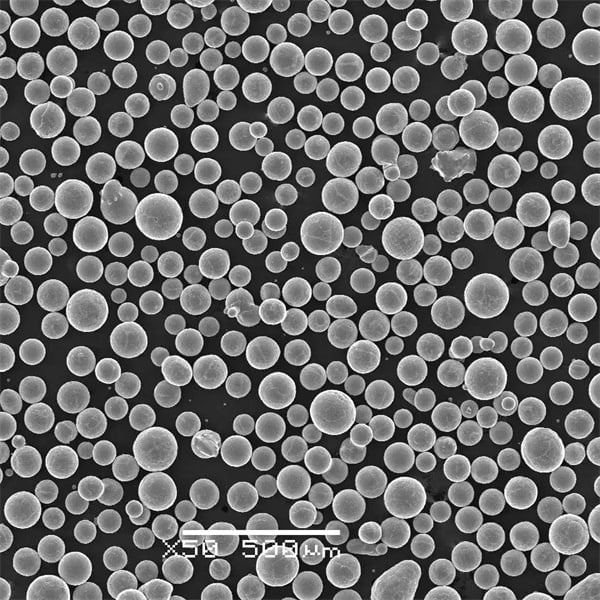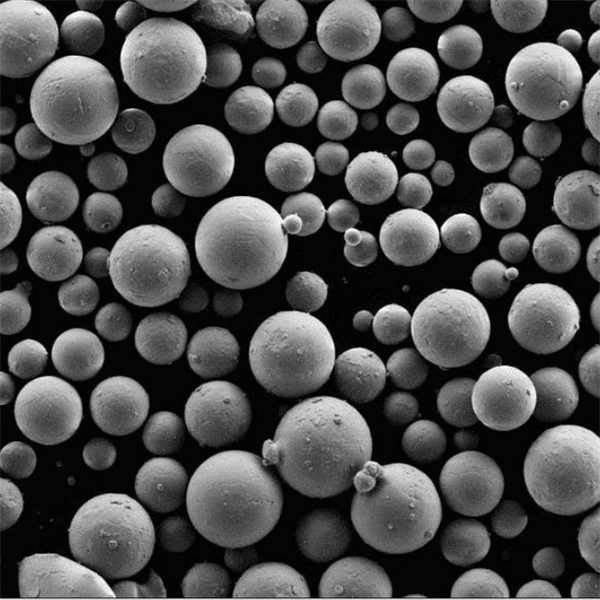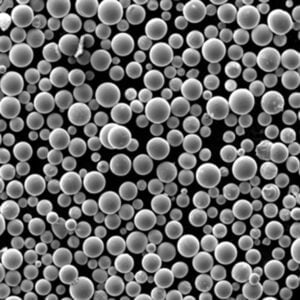Sustainable Supply
Table of Contents
Overview
The concept of a sustainable supply chain is rapidly becoming a cornerstone in modern manufacturing and engineering industries. Sustainable supply involves the integration of eco-friendly practices into the sourcing, production, and distribution of materials. This practice aims to minimize environmental impact while maximizing economic and social benefits. By adopting sustainable supply practices, companies can reduce waste, lower costs, improve efficiency, and enhance their brand reputation. But what does this mean in the context of metal powders? Let’s dive into the world of sustainable supply for metal powders and explore its implications, applications, and the best practices in the industry.
Key Details of Sustainable Supply in Metal Powders
Sustainable supply in the realm of metal powders revolves around the use of renewable resources, recycling, and reducing the carbon footprint associated with production and distribution. This approach not only conserves natural resources but also ensures the longevity and sustainability of the supply chain.
Table: Types of Metal Powders and Their Sustainable Characteristics
| Metal Powder | Composition | Properties | Sustainable Characteristics |
|---|---|---|---|
| Aluminum Powder | Al | Lightweight, conductive | Recyclable, low melting point |
| Titanium Powder | Ti | High strength, corrosion-resistant | Abundant in nature, biocompatible |
| Copper Powder | Cu | High conductivity, malleable | Recyclable, low energy refining |
| Stainless Steel Powder | Fe, Cr, Ni | Durable, corrosion-resistant | Recyclable, long lifespan |
| Nickel Powder | Ni | High strength, corrosion-resistant | Recyclable, low environmental impact |
| Iron Powder | Fe | Magnetic, high strength | Abundant, easily recyclable |
| Zinc Powder | Zn | Corrosion-resistant, malleable | Recyclable, low melting point |
| Magnesium Powder | Mg | Lightweight, high strength | Abundant, biodegradable |
| Bronze Powder | Cu, Sn | Durable, corrosion-resistant | Recyclable, made from copper and tin |
| Cobalt Powder | Co | High temperature resistance | Recyclable, low toxicity |

Applications of Sustainable Supply in Metal Powders
The applications of metal powders in sustainable supply chains are vast. They are used in additive manufacturing, automotive industry, aerospace, electronics, and medical devices. Each application benefits from the unique properties of metal powders, such as lightweight, strength, and recyclability.
| Application | Metal Powder Used | Benefits |
|---|---|---|
| Additive Manufacturing | Titanium, Aluminum, Steel | Lightweight, strong, customizable |
| Automotive Industry | Iron, Aluminum, Magnesium | Lightweight, durable, corrosion-resistant |
| Aerospace | Titanium, Aluminum, Nickel | High strength-to-weight ratio, heat resistance |
| Electronics | Copper, Silver, Gold | High conductivity, malleability |
| Medical Devices | Titanium, Stainless Steel | Biocompatible, strong, corrosion-resistant |
Specifications, Sizes, Grades, and Standards
Understanding the specifications, sizes, grades, and standards of metal powders is crucial for their effective application in various industries. These parameters ensure that the metal powders meet the required quality and performance standards.
| Metal Powder | Sizes | Grades | Standards |
|---|---|---|---|
| Aluminum Powder | 10-150 microns | AA6061, AA7075 | ASTM B928, ISO 209 |
| Titanium Powder | 15-45 microns | Ti6Al4V, CP Grade 2 | ASTM B348, ISO 5832-2 |
| Copper Powder | 20-100 microns | C11000, C22000 | ASTM B152, ISO 431 |
| Stainless Steel Powder | 15-45 microns | 316L, 304L | ASTM A240, ISO 5832-1 |
| Nickel Powder | 20-80 microns | N02201, N06600 | ASTM B160, ISO 9723 |
| Iron Powder | 10-100 microns | AISI 1008, AISI 1018 | ASTM A848, ISO 630-2 |
| Zinc Powder | 15-100 microns | Zn22, Zn4Al | ASTM B418, ISO 752 |
| Magnesium Powder | 20-100 microns | AZ31B, AZ91D | ASTM B107, ISO 16220 |
| Bronze Powder | 10-80 microns | C93200, C95400 | ASTM B22, ISO 197 |
| Cobalt Powder | 20-70 microns | L605, Haynes 25 | ASTM F75, ISO 5832-4 |
Suppliers and Pricing Details
Finding reliable suppliers and understanding the pricing details are critical for maintaining a sustainable supply chain. Various suppliers offer metal powders at different price points, depending on the quality, quantity, and specifications.
| Supplier | Metal Powder | Pricing (per kg) | Comments |
|---|---|---|---|
| Metal Powders USA | Aluminum, Titanium, Steel | $30 – $100 | Bulk discounts available |
| Global Metal Powders Ltd | Copper, Nickel, Iron | $20 – $80 | ISO certified |
| EcoPowders International | Magnesium, Zinc, Bronze | $25 – $90 | Sustainable sourcing practices |
| Advanced Powders Corp | Cobalt, Stainless Steel | $50 – $120 | High purity options |
Advantages and Limitations of Metal Powders in Sustainable Supply
Understanding the pros and cons of using metal powders in sustainable supply chains is essential for making informed decisions. Different metal powders offer unique advantages and limitations based on their properties and applications.
| Metal Powder | Advantages | Limitations |
|---|---|---|
| Aluminum Powder | Lightweight, recyclable, corrosion-resistant | Expensive production, limited high-temperature use |
| Titanium Powder | High strength, biocompatible, corrosion-resistant | High cost, complex processing |
| Copper Powder | High conductivity, recyclable, antimicrobial | Heavy, prone to oxidation |
| Stainless Steel Powder | Durable, corrosion-resistant, recyclable | Expensive, requires high-energy production |
| Nickel Powder | High strength, corrosion-resistant, recyclable | Toxicity concerns, high cost |
| Iron Powder | Abundant, easily recyclable, magnetic | Prone to rust, limited high-temperature use |
| Zinc Powder | Corrosion-resistant, recyclable, low melting point | Brittle, limited structural applications |
| Magnesium Powder | Lightweight, abundant, biodegradable | Flammable, reactive with water |
| Bronze Powder | Durable, corrosion-resistant, recyclable | Heavy, limited structural applications |
| Cobalt Powder | High temperature resistance, recyclable, low toxicity | Expensive, limited availability |
Sustainable Supply Chain Practices
Implementing sustainable supply chain practices involves several strategies, including sourcing raw materials responsibly, optimizing production processes, and ensuring efficient distribution methods.
Sourcing Raw Materials Responsibly
Responsible sourcing involves selecting suppliers who adhere to environmental and ethical standards. This ensures that the materials used in production are obtained without causing harm to the environment or violating human rights.
Optimizing Production Processes
Optimizing production processes to reduce waste and energy consumption is crucial for sustainability. This can be achieved through the use of advanced manufacturing technologies, such as additive manufacturing, which minimizes material waste.
Ensuring Efficient Distribution Methods
Efficient distribution methods reduce the carbon footprint associated with transportation. This can be achieved by optimizing logistics, using renewable energy sources, and implementing carbon offset programs.
Environmental and Economic Benefits of Sustainable Supply
Sustainable supply chains offer significant environmental and economic benefits. These include reducing greenhouse gas emissions, conserving natural resources, and lowering production costs.
Environmental Benefits
- Reduced Carbon Footprint: Sustainable supply chains minimize greenhouse gas emissions by using eco-friendly materials and energy-efficient processes.
- Conservation of Natural Resources: By recycling and reusing materials, sustainable supply chains help conserve natural resources.
- Reduced Waste: Advanced manufacturing techniques, such as 3D printing, reduce material waste and improve resource efficiency.
Economic Benefits
- Cost Savings: Efficient production processes and reduced material waste lead to significant cost savings.
- Increased Competitiveness: Companies that adopt sustainable practices often gain a competitive edge in the market.
- Enhanced Brand Reputation: Sustainable practices enhance a company’s brand reputation, attracting environmentally conscious consumers.
Challenges in Implementing Sustainable Supply Chains
Despite the numerous benefits, implementing sustainable supply chains also presents several challenges. These include high initial costs, complex logistics, and the need for technological advancements.
High Initial Costs
Transitioning to sustainable supply chains often requires significant upfront investments in new technologies and processes. This can be a barrier for small and medium-sized enterprises.
Complex Logistics
Managing a sustainable supply chain involves complex logistics, including coordinating with multiple suppliers and ensuring compliance with
environmental standards.
Need for Technological Advancements
The successful implementation of sustainable supply chains relies heavily on technological advancements. This includes the development of new materials, manufacturing processes, and distribution methods.
Future Trends in Sustainable Supply Chains
The future of sustainable supply chains looks promising, with several trends emerging that are set to revolutionize the industry.
Increased Use of Renewable Energy
The adoption of renewable energy sources, such as solar and wind power, is expected to increase, reducing the carbon footprint of supply chains.
Advancements in Additive Manufacturing
Advancements in additive manufacturing technologies, such as 3D printing, will continue to improve resource efficiency and reduce waste.
Development of Smart Supply Chains
The integration of smart technologies, such as IoT and AI, will enable more efficient and transparent supply chain management.

Conclusion
Sustainable supply chains are not just a trend but a necessity for the future of manufacturing and engineering. By adopting sustainable practices, companies can not only reduce their environmental impact but also achieve significant economic benefits. The use of metal powders in sustainable supply chains offers numerous advantages, from reducing waste to improving efficiency. However, it also presents challenges that need to be addressed through technological advancements and strategic planning. As we move forward, the adoption of sustainable supply chains will become increasingly important, driving innovation and shaping the future of the industry.
FAQ
| Question | Answer |
|---|---|
| What is sustainable supply? | Sustainable supply involves integrating eco-friendly practices into the sourcing, production, and distribution of materials. |
| Why is sustainable supply important? | It minimizes environmental impact, conserves resources, reduces waste, lowers costs, and enhances brand reputation. |
| What are the benefits of using metal powders? | Metal powders offer high recyclability, lightweight properties, and strength, making them ideal for various applications. |
| What are the challenges of sustainable supply? | High initial costs, complex logistics, and the need for technological advancements are significant challenges. |
| How can companies implement sustainable supply? | By sourcing raw materials responsibly, optimizing production processes, and ensuring efficient distribution methods. |
| What are the future trends in sustainable supply? | Increased use of renewable energy, advancements in additive manufacturing, and development of smart supply chains are key future trends. |
Share On
MET3DP Technology Co., LTD is a leading provider of additive manufacturing solutions headquartered in Qingdao, China. Our company specializes in 3D printing equipment and high-performance metal powders for industrial applications.
Inquiry to get best price and customized Solution for your business!
Related Articles
About Met3DP
Recent Update
Our Product
CONTACT US
Any questions? Send us message now! We’ll serve your request with a whole team after receiving your message.

Metal Powders for 3D Printing and Additive Manufacturing
COMPANY
PRODUCT
cONTACT INFO
- Qingdao City, Shandong, China
- [email protected]
- [email protected]
- +86 19116340731

















